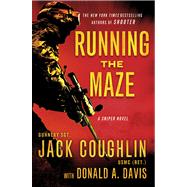
GUNNERY SERGEANT JACK COUGHLIN was with the Third Battalion, Fourth Marines during the drive to Baghdad and has operated on a wide range of assignments in hotspots around the world. DONALD A. DAVIS is the author of 23 books, including multiple New York Times bestsellers.
"Will leave readers cheering.” —Publishers Weekly on Clean Kill
The New copy of this book will include any supplemental materials advertised. Please check the title of the book to determine if it should include any access cards, study guides, lab manuals, CDs, etc.
The Used, Rental and eBook copies of this book are not guaranteed to include any supplemental materials. Typically, only the book itself is included. This is true even if the title states it includes any access cards, study guides, lab manuals, CDs, etc.